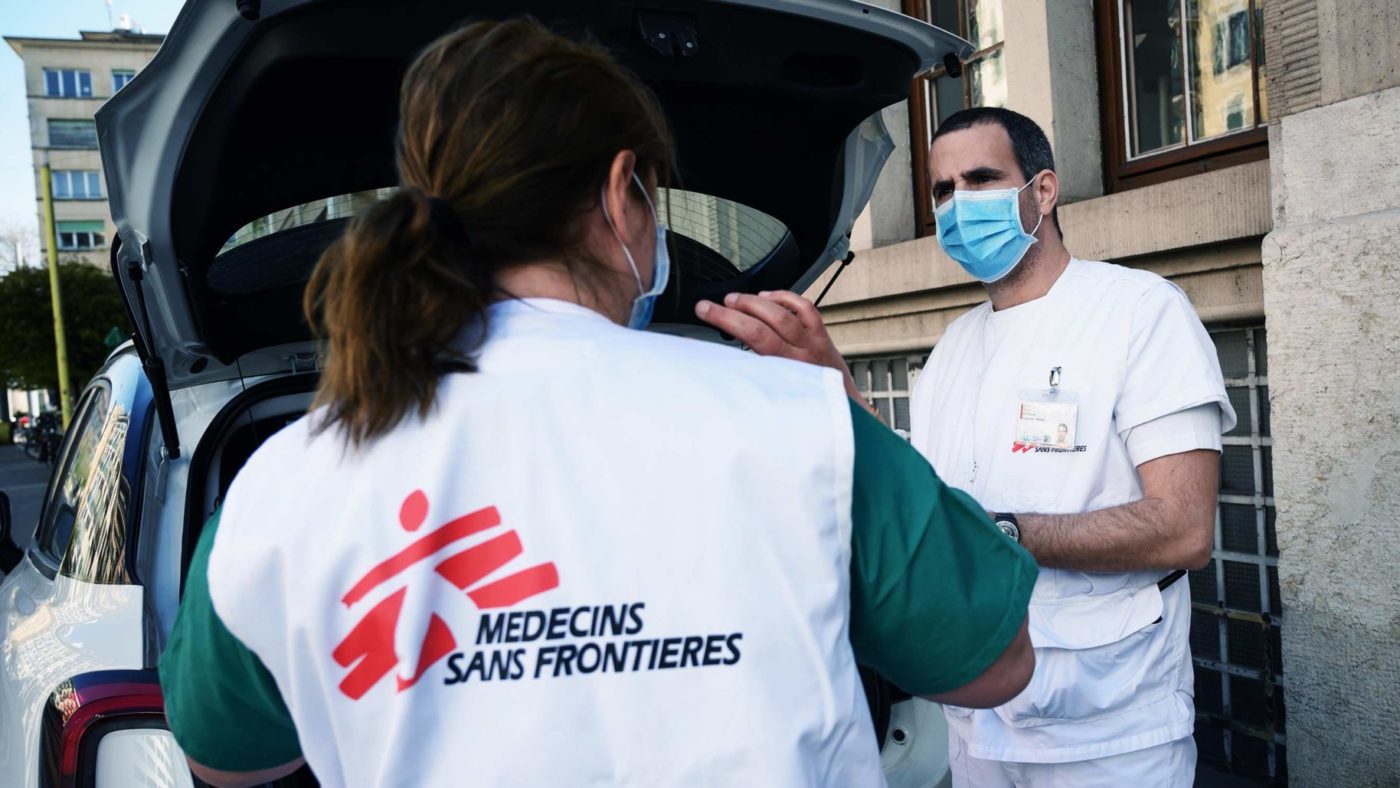As the world scrambles to respond to the Covid-19 pandemic, it is time to upend the business-as-usual rules of the pharmaceutical sector to ensure future treatments, vaccines or diagnostics for the virus are affordable and available to all. Governments need to step up and refrain from granting patents or exclusive rights to pharmaceutical corporations on any Covid-related medical tools.
Millions of pounds of UK taxpayers’ money have already contributed to the research and development of new Covid medical products. The government, as a key international actor and donor, must ensure that conditions are attached to these public funds to ensure that any products developed as a result are affordable and equitably distributed.
At Médecins Sans Frontières (MSF) we have seen the deadly impacts of the pharmaceutical industry’s for-profit approach to the development of medical products; be it through lifesaving treatments priced out of reach, or the neglect of diseases not deemed profitable enough for research investment. MSF had no drugs or vaccines to tackle the Ebola virus pandemic in 2014, despite a clinical trial showing an effective vaccine candidate 20 years earlier. There was simply no financial interest from the private sector in moving it forward, so it got dropped. It could have saved thousands of lives.
The coronavirus is yet another example of the neglect of diseases that are not considered profitable enough for investment in research until it is too late; a lack of interest in the research of coronavirus vaccines has meant we are less equipped than we could have been to respond to this pandemic.
Medical innovation is currently incentivised by 20-year monopolies granted to pharmaceutical corporations through patents on the medical products they develop. These patents allow corporations to charge whatever price they like during this period by blocking other manufacturers from producing more affordable versions. Whilst the pharmaceutical industry has long defended high prices and the need for stricter patent rules in the name of time and money invested in the R&D process, there are two major flaws with this argument.
Firstly, whilst drug development is expensive, it is simply not as costly as pharmaceutical companies claim. Whilst the industry often cites costs of $2-3billion to develop a new drug, independent studies and non-profit drug discovery have shown it to be up to 10 times less. However, a lack of transparency on the real costs of R&D continues to undermine the ability of governments and customers to hold the industry to account, and to negotiate fair prices.
Secondly, this system ignores the huge taxpayer contributions to the development of medical innovations. The UK is the second largest government funder of global health R&D, after the US. It is estimated that government funding accounts for two-thirds of all up-front drug R&D costs. Covid-19 is no exception; in the search for future vaccines, diagnostics and treatments, a recent pledging conference hosted by the EU, and co-hosted by the UK and several other countries, raised €7.4 billion of public and philanthropic money to develop and ensure global access to these products.
In the UK, Oxford University’s Jenner Institute, seen as a leader in the race to develop a vaccine , has received £20 million government funding for their research and clinical trials, while Imperial College London has received £22.5 million. These domestic commitments are in addition to the £250 million that the UK government has contributed to international efforts to find a vaccine for COVID-19 through the Coalition for Epidemic Preparedness Innovations (CEPI) – the largest single contribution by any single country to the initiative.
With billions of pounds of public money being put into the development of medical products for the disease, there is no justification for pharmaceutical companies to need to “recoup” their research investments through high prices, because it is not their money being used in the first place.
This leads to the question: why should pharmaceutical corporations be granted monopolies, through patents and other exclusivities, and make profits from products that were developed with taxpayers’ money? If safeguards are not put in place now, COVID-19 could become the latest example where patients in the UK and around the world are blocked from accessing lifesaving medical products due to patent monopolies and high prices.
The UK government should assign binding conditions to its funding for Covid-19 research to ensure that any resulting product is treated as a ‘global public good’ with no patents or monopolies, and that they are affordable and universally available to everyone.
Where patents already exist, the government should suspend or override them through legal measures such as Crown Use Licenses to secure multiple alternative suppliers and increased global production capacity at affordable price. Furthermore, governments should mandate that Covid-19 technologies are shared globally, including clinical trial data and technical know-how so that other manufacturers can build on research, or develop their own production capacities, including in low and middle-income countries.
The MSF Access Campaign was set up in 1999 against the backdrop of the HIV/AIDS epidemic to confront the challenges of lack of available or affordable treatments that were, and still are, the result of a broken pharmaceutical R&D system. To those that argue that we are distorting the realities of the drug market; remember that we witness the harsh reality of this system every day, when we can’t save lives because we don’t have the treatments we need, or because they are unaffordable. Finding new medical tools for Covid-19 is a collective effort; the results should be available to all.
Click here to subscribe to our daily briefing – the best pieces from CapX and across the web.
CapX depends on the generosity of its readers. If you value what we do, please consider making a donation.


